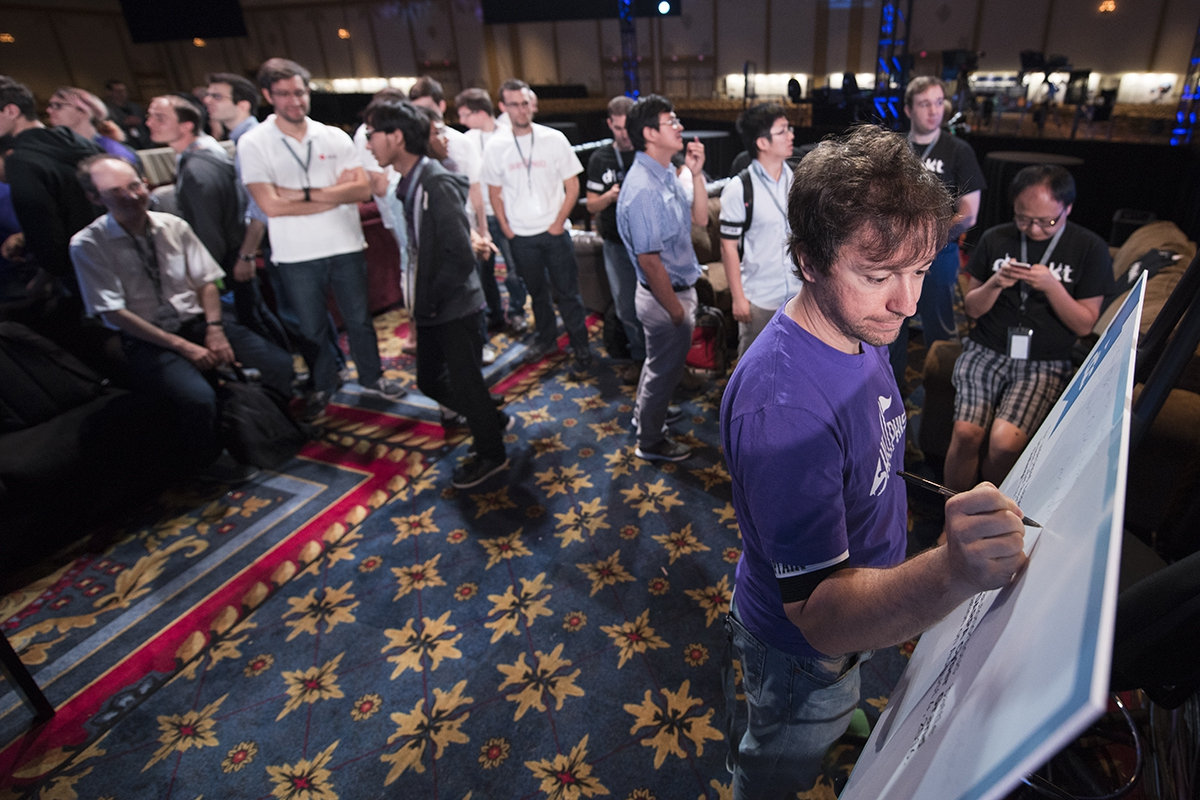
Illustration by Seeflection.com
U.S. Military Sees Threat in China’s Drive for AI Dominance
A Saturday essay in The Wall Street Journal entitled “The New Arms Race in AI,” tackled the issue of China’s advance into artificial intelligence, interviewing military officials about how they became aware of the Asian superpower’s efforts four years ago when they were alerted to certain technologies more advanced than those in the United States.
In one AI project, a program could scan drone video and find details that eluded humans, such as people moving between previously unidentified terrorist safe houses. That inspired the military planners at the Pentagon’s Strategic Capabilities Office to push forward in exploiting the rapidly improving ability of computers to adapt to new information, respond independently and make decisions set within rule systems.
The cat-and-mouse game between the two countries apparently turned into a full-blown AI arms race when the China’s People’s Liberation Army learned that Google’s DeepMind used AI to defeat a Chinese champion at the ancient game of Go. Then, according to Elsa Kania, a specialist on Chinese military innovation at the Washington-based Center for a New American Security, China decided AI was the key to military superiority and announced plans to become the world’s leader in AI militarily and also economically by 2030.

DARPA’s Cyber Grand Challenge applied artificial intelligence as a means to both attack and defend cyber resources. Credit: DARPA
C4ISRNET.com, a trade magazine covering “Media for the Intelligence-Age Military,” sounded the alarm last November when China announced its intentions to beat the United States at AI technology in article with the headline, “Alexa, Does the U.S. Lead in Military AI?” Paul Scharre, a technology expert with the Center for a New American Security think tank, said the move had “huge implications” for national security.
“Artificial intelligence and automation could also bring about broader economic and political [factors] that affect foreign policy and international relations,” Scharre said. “For example, if we see significant economic disruption caused by automation, how nations weather these challenges may play a major role in which nations remain global leaders.”
Eric Schmidt, who was formerly CEO of Google parent company Alphabet and Chairman of the Pentagon’s Defense Innovation Board, described China’s plan in no uncertain terms. “It’s pretty simple. By 2020 they will have caught up. By 2025 they will be better than us. By 2030 they will dominate the industries of AI,” Schmidt said.
The economic impact of China’s goals attracted the most attention, according to the authors of the National Security Strategy, whose report concerned the danger of challenging American technological superiority and stealing intellectual property. One American company, Google, is betting than the country’s AI development will produce AI talent, and announced in December that it will be opening an AI Center in Beijing. The Department of Defense has pursued working with private companies on R&D of AI systems and has made it a priority, according to Schmidt.
Alibaba, the biggest R&D spender in China and a company with one of the largest market caps in the world, spent $2.7 billion on AI in 2017, according to a story in TechReview.com, entitled “Inside the Chinese Lab that Plans to Rewire the World with AI.”
Cloud computing will be critical in determining which country harnesses the talent of AI innovators. From ticket kiosks that read faces to Tmall Genie, a chatbot similar to Amazon Echo, Alibaba has already invested in AI technologies that are being used throughout China. According to the article, “Like cloud storage (think Dropbox) or cloud computing (Amazon Web Services), cloud AI will make powerful resources cheaply and readily available to anyone with a computer and an internet connection, enabling new kinds of businesses to grow.”
Alibaba plans to spend $15 billion over the next three years on a research institute called the DAMO Academy (“discovery, adventure, momentum, and outlook”), dedicated to fundamental technologies—triple what the Chinese government pledged to invest. Compare that to AI investments by Amazon at $16.1 billion and Alphabet at $13.9 billion in 2017 alone, and it doesn’t sound quite as impressive.
Undoubtedly, the United States remains the country with the greatest investment, for now, but China will take advantage of its cultural imperative to succeed, driven by a government that doesn’t need to consider privacy, human rights and whether or not its citizens agree with its goals, particularly since Xi Jinping, President and General Secretary of the Communist Party in China, announced that China has done away with term limits, and that he planned to stay as its leader. China may have the advantage in terms of its sheer ability to single-mindedly pursue its goals, but, if properly supported, American companies still have the advantage, at least for the next year.







Leave A Comment